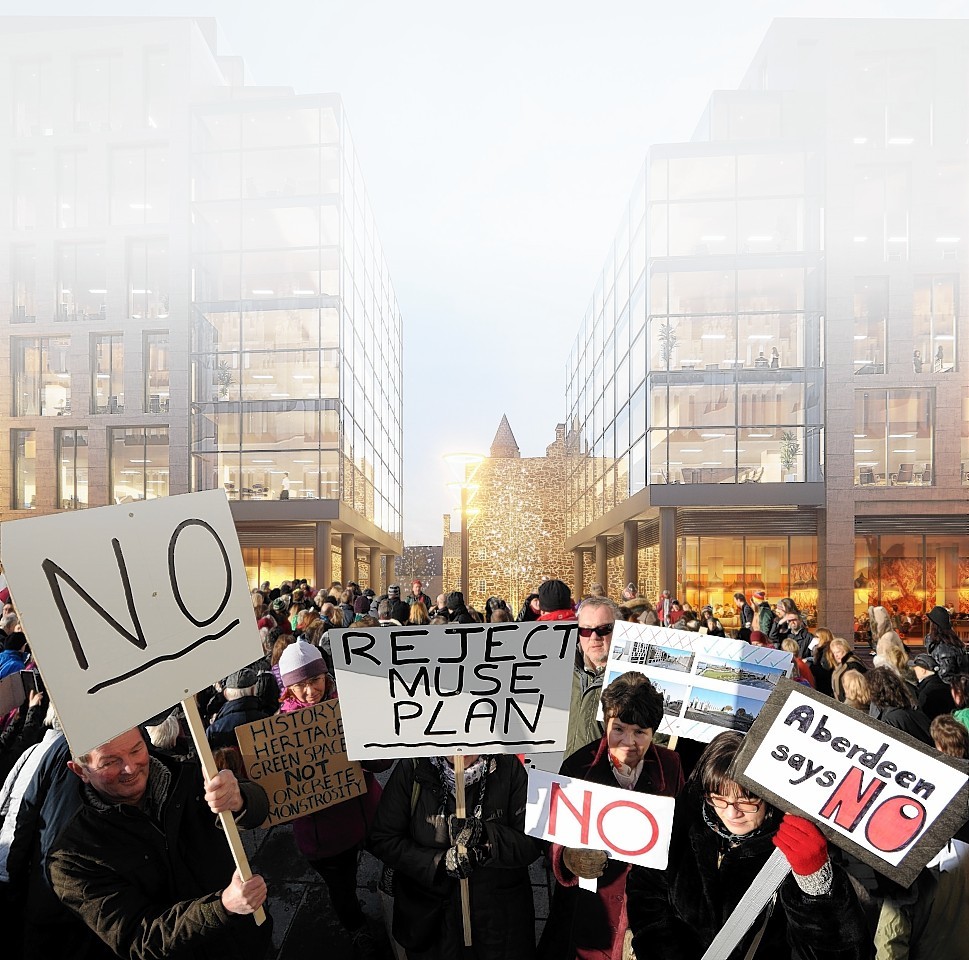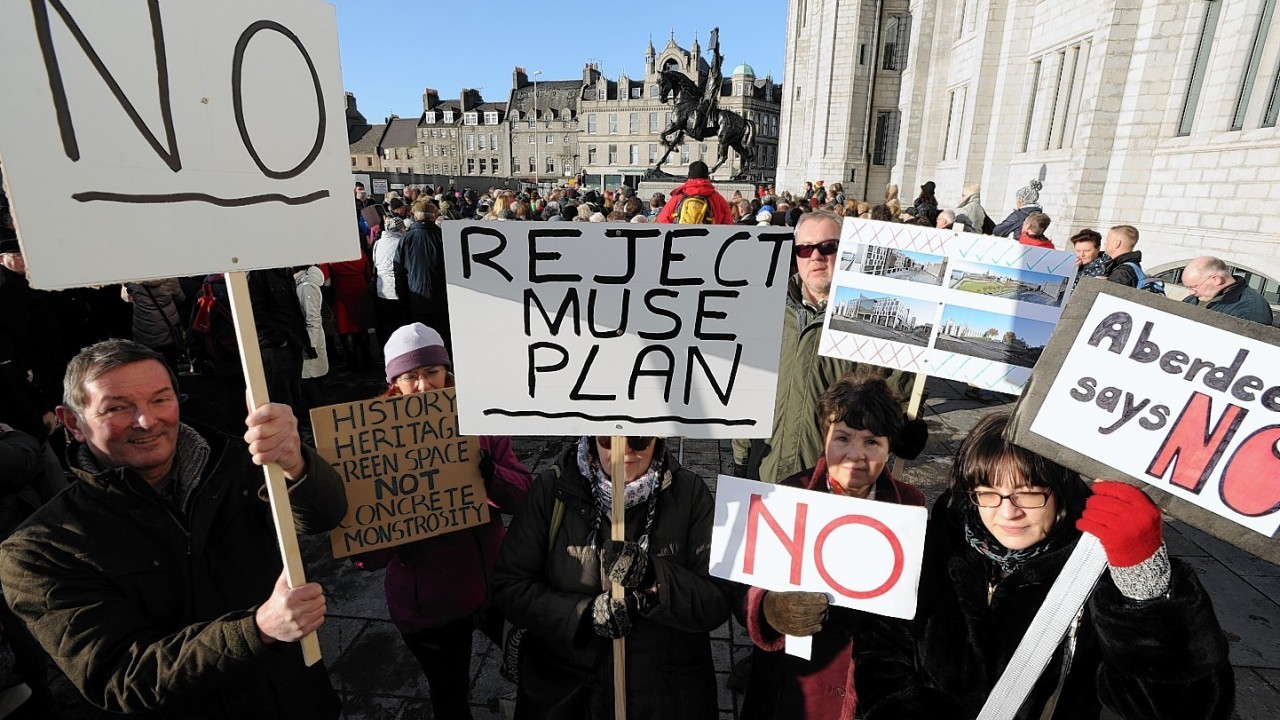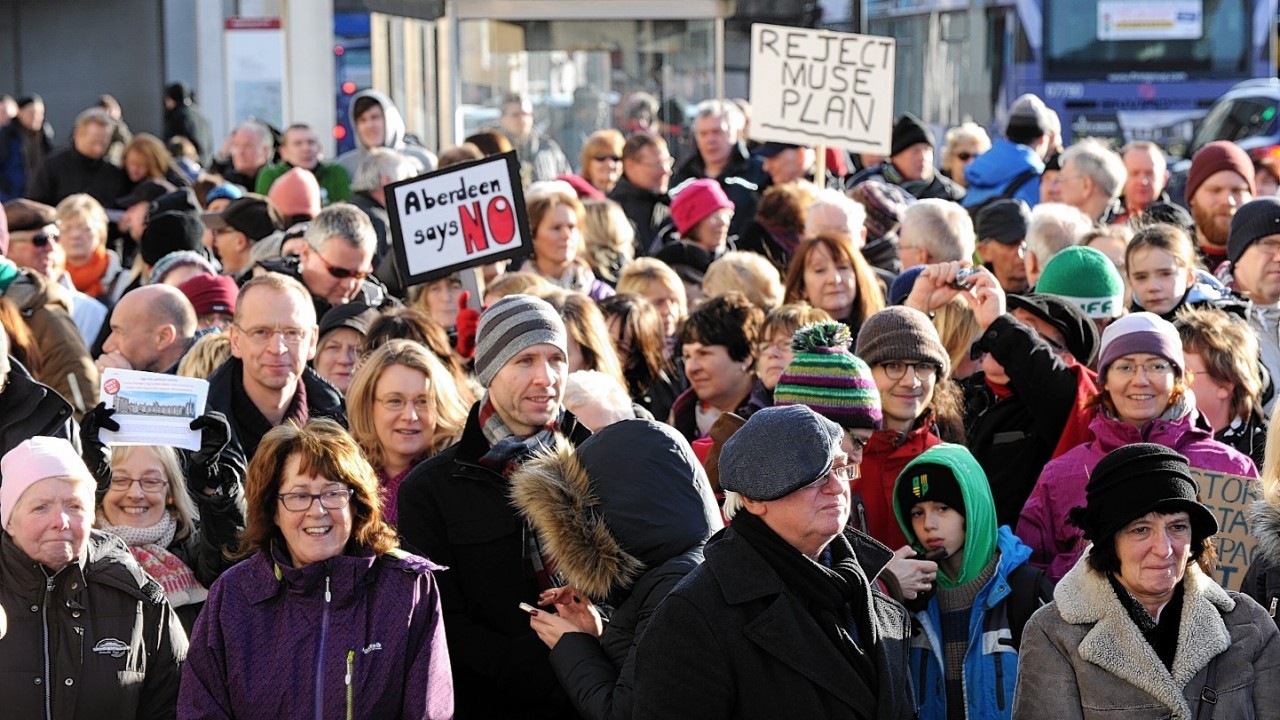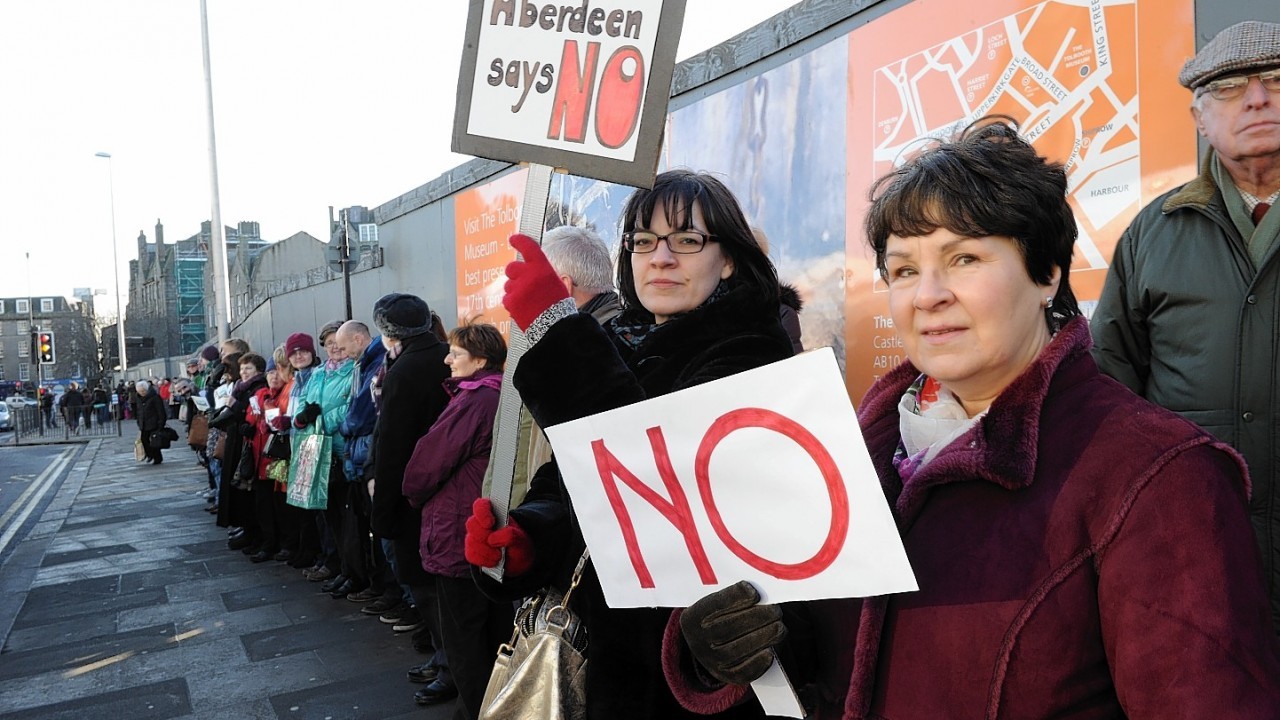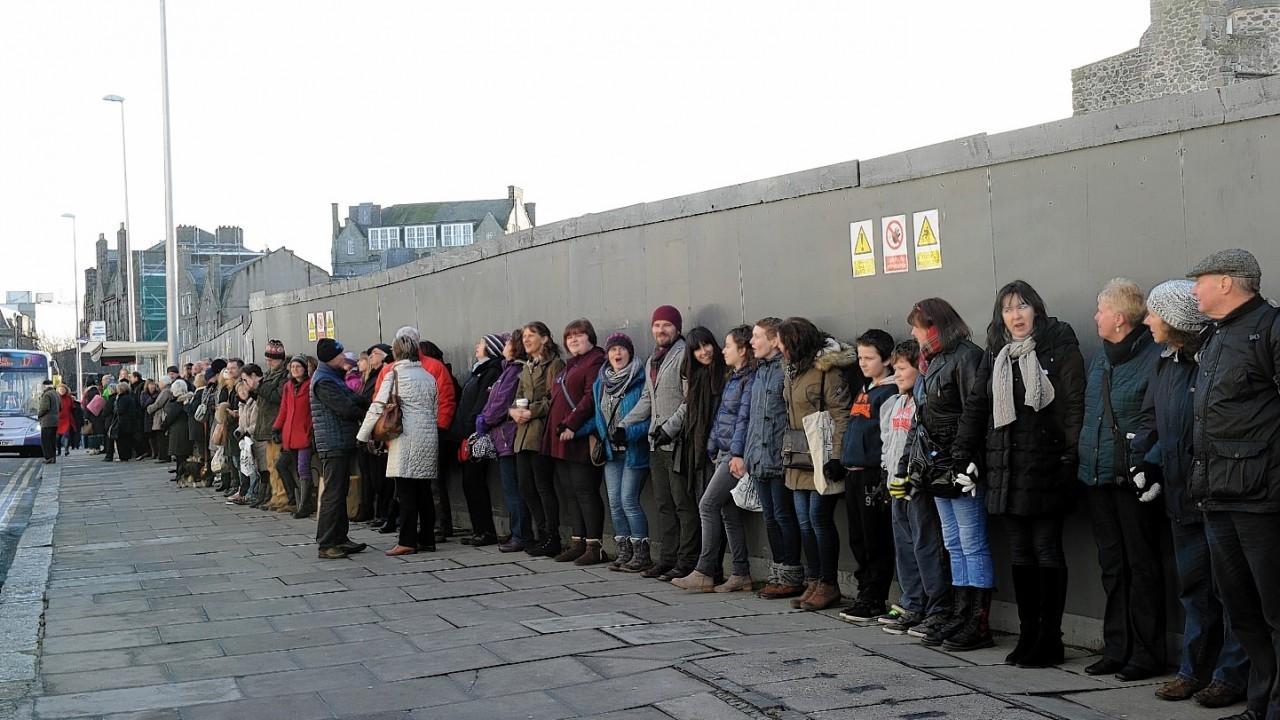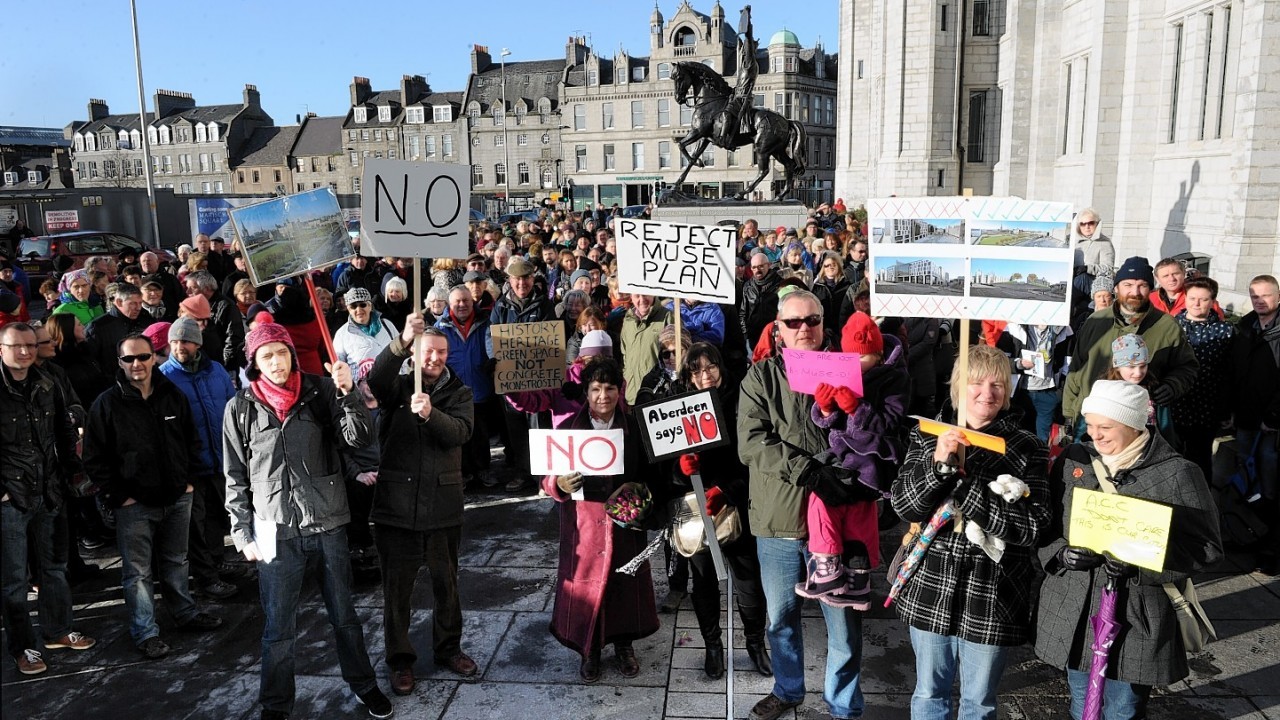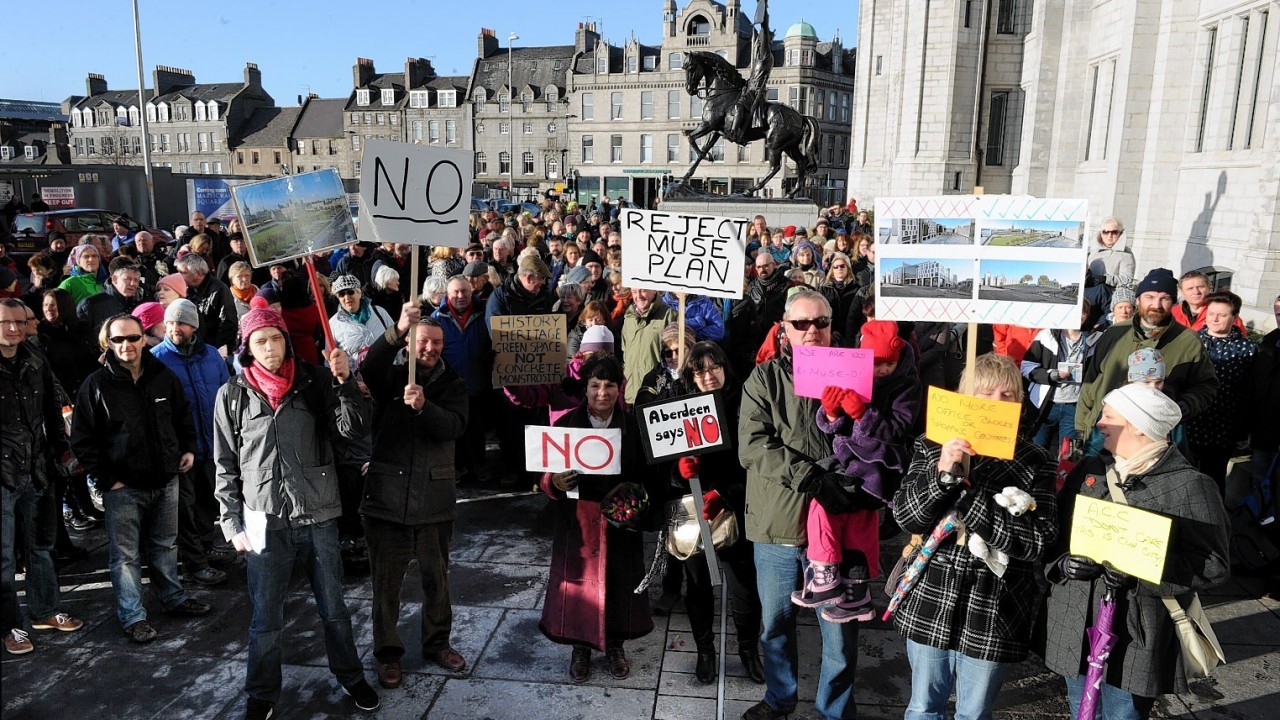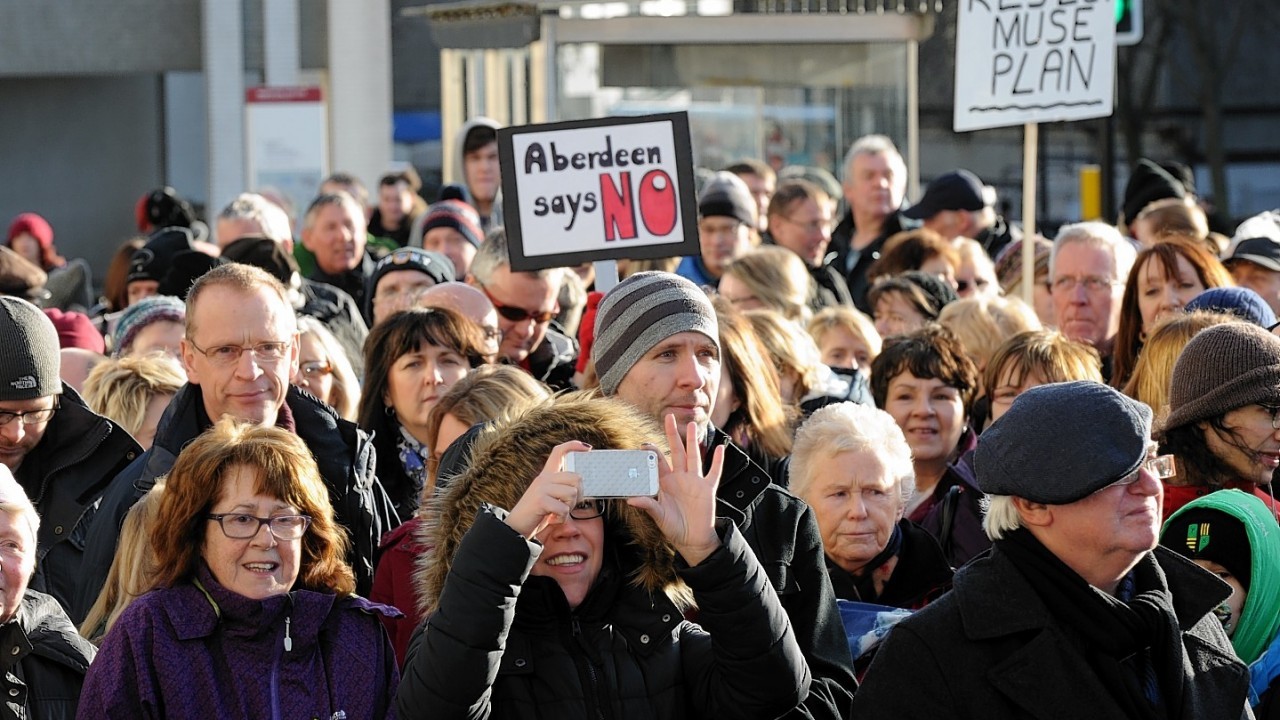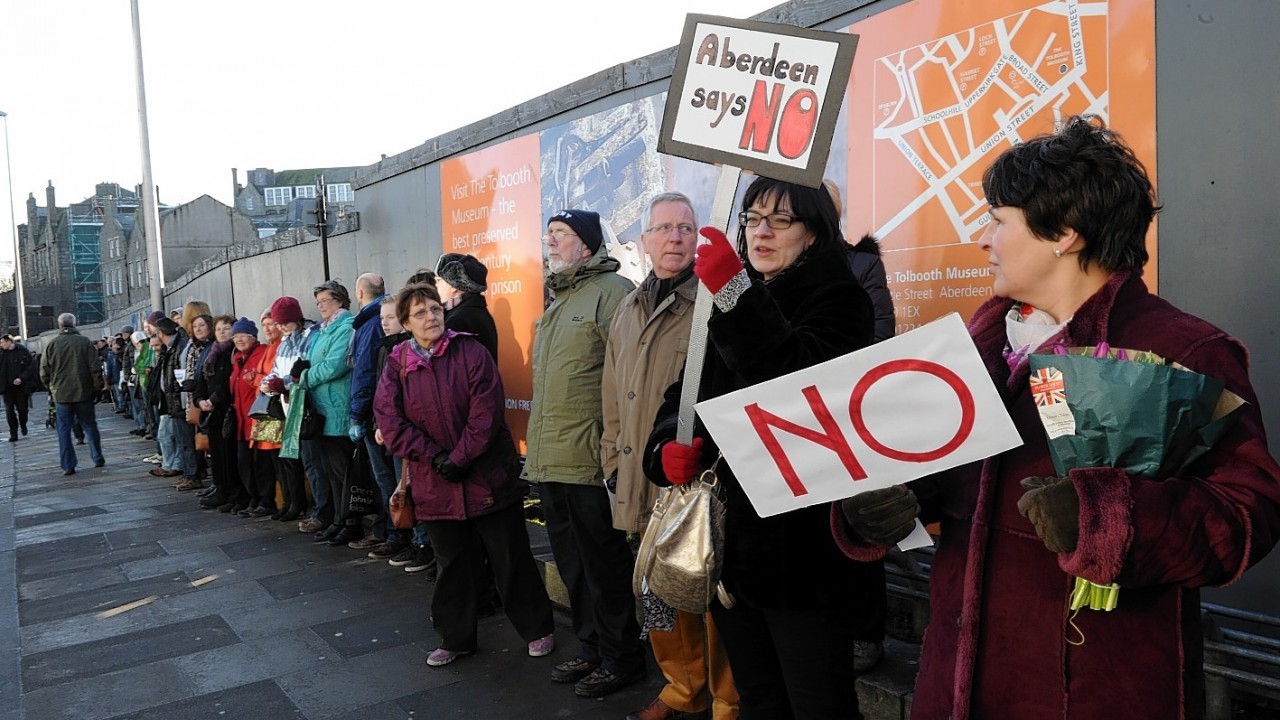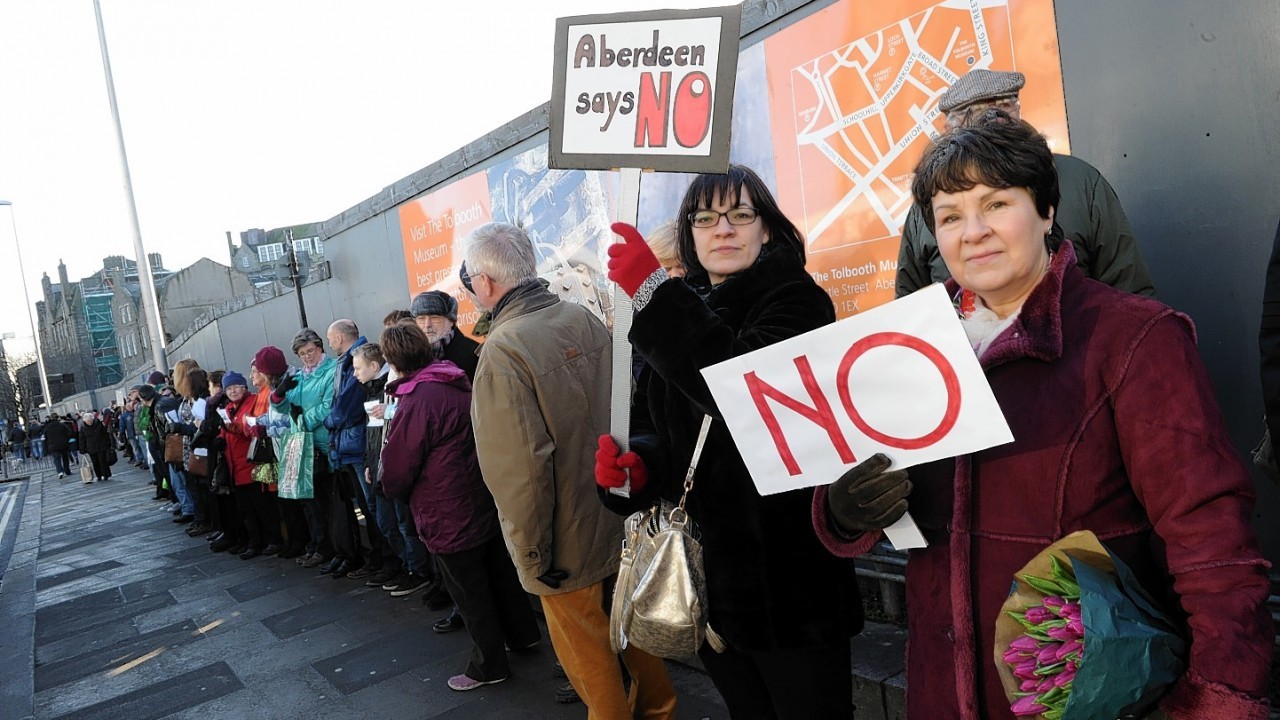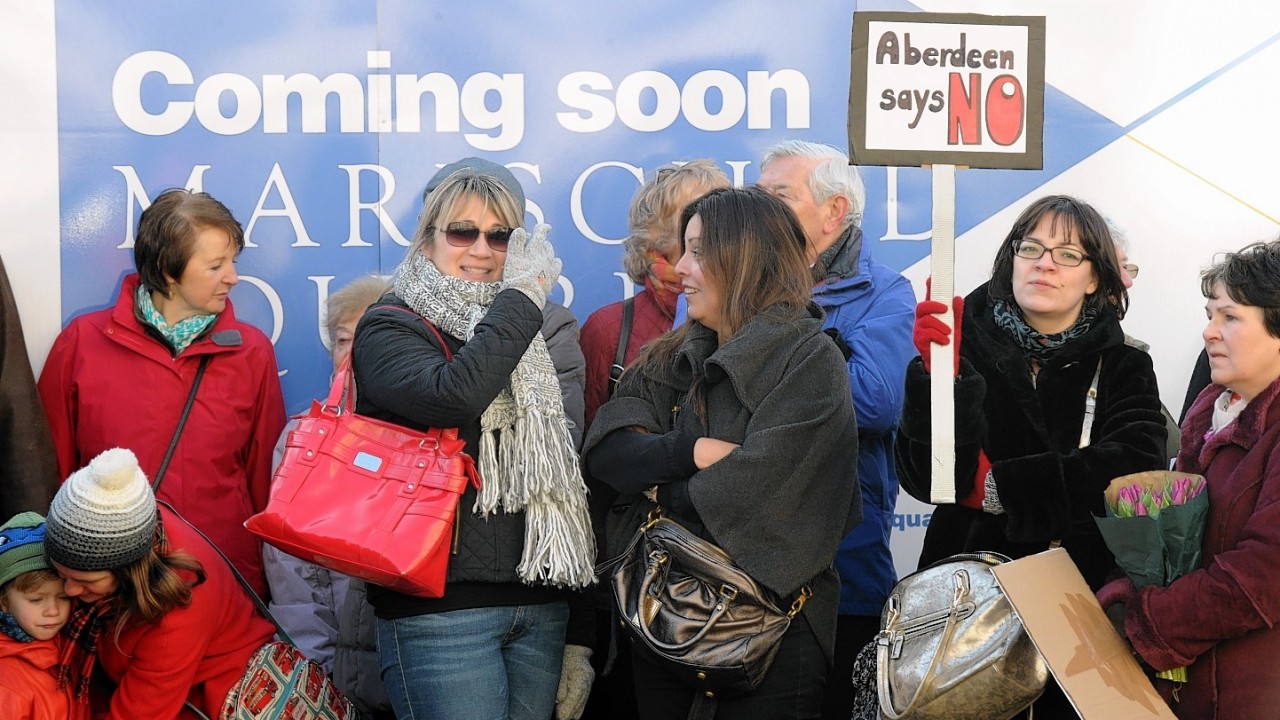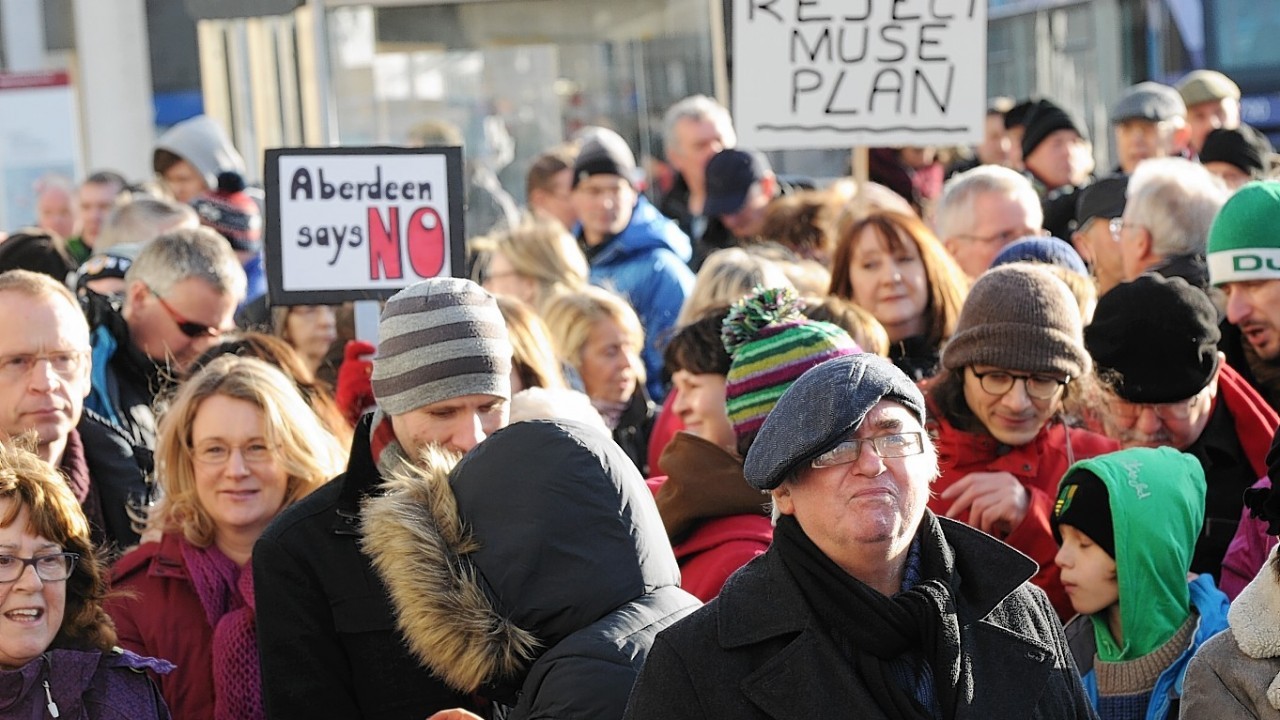Councillors last night voted down a bid to halt the controversial Marischal Square development amid angry scenes as members of the public were shut out of a meeting.
The Labour-led administration narrowly fended off the attempt from the opposition SNP group to force a rethink on the £107million Muse Developments hotel, office and retail plan by 22-21.
All councillors voted along party lines bar Conservative Ross Thomson, who sided with the SNP and Liberal Democrats.
Learnt I've been dubbed the 21st Cllr as vote to proceed with #MarischalSquare won 22/21. I tried & fought for a different result
— Ross Thomson MSP (@RossThomsonMSP) March 5, 2015
The press and public were twice asked to leave the meeting to allow legal advice and subsequent debate to take place in private.
That prompted shouts from protestors that the process was “undemocratic” and lacking in transparency.
An SNP motion called for an “immediate moratorium” on delegated powers relating to the development – a term which refers to decisions that can be taken by council officers rather than elected members.
It also requested a report on the legal implications of withdrawing from the contract with Muse and to invite the company to talks on how the project may be redesigned.
SNP group leader Callum McCaig, who had requisitioned the special meeting, said the matter was of “huge public interest” about a development in “the heart of the city”.
Six members of the public were permitted to make deputations before the meeting moved towards a stage of questions to officers.
Jane MacEachran, the council’s head of legal and democratic services, warned members they had to be careful in making comments as the council was acting as both planning authority and “a legal, commercial partner” in the development.
She added: “You are legally committed to this project.”
Head of finance Steven Whyte also told councillors that pulling out of deal at this late stage would result in a bill “that would run to seven or eight figures”.
Liberal Democrat councillor Jennifer Stewart asked whether the taxpayer would foot the bill if there were losses from the development.
Mr Whyte said the council would sub-lease the units, and the “net effect would sit with the council, whether that is surplus or a loss”.
When asked about the impact of pulling out of a deal it is legally committed to, Mrs MacEachran said it would be “catastrophic” for any “future transactions” within the city.
Margaret Bochel, head of planning, insisted the pedestrian or civic square plans for Broad Street could still go ahead and were under consideration as part of the authority’s city centre masterplan.
Councillors then voted 22-21 on a procedural motion to send the meeting into private session, prompting complaints from the packed public gallery.
Several councillors had asked if the meeting could remain in public, given some of the legal advice had already been referred to in a report in the Press and Journal yesterday.
After a little more than an hour in private, the meeting re-opened to the press and public at 7.35pm.
That was to allow for a procedural vote on whether the remainder of the meeting should be in private, which the administration won 22-21, again.
Some members of the public initially refused to leave the public gallery, and there were angry exchanges between administration and opposition councillors outside the chamber during a brief recess.
In the corridor, leading campaigner Lorna McHattie, from the Reject Marischal Square Development group, said: “Party politics wins and democracy doesn’t.”
“To be honest I’m really not surprised because this whole administration has been involved in secret decisions. There is no opennesss or transparency about this.
“In terms of their code of conduct, I feel that they breach it and I think we need to be making representations about that because clearly justice is not being seen to be done.”
The final vote also went 22-21 against the SNP motion, which by then included an addendum from the Liberal Democrats on asking for the chief executive to look into how the legal advice made it into the public domain. The administration amendment called for council to note previous decisions on the project and take no further action.
